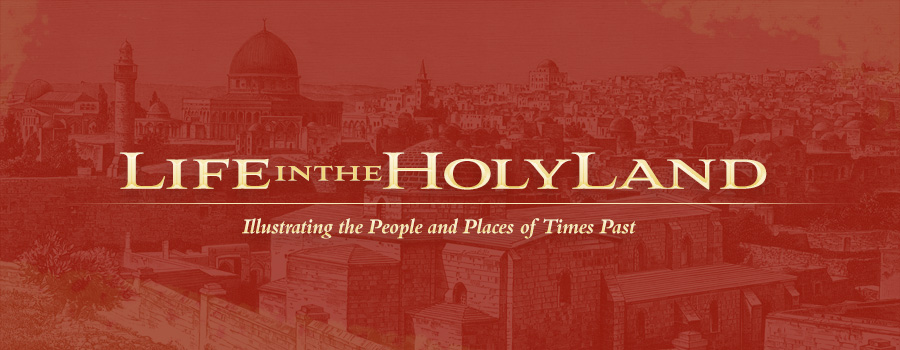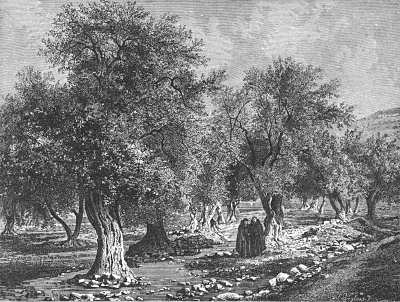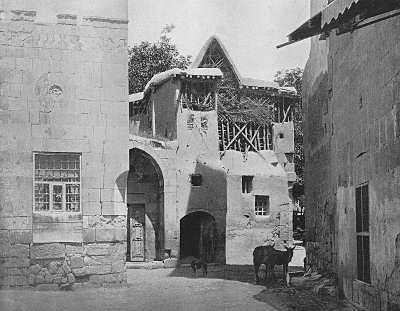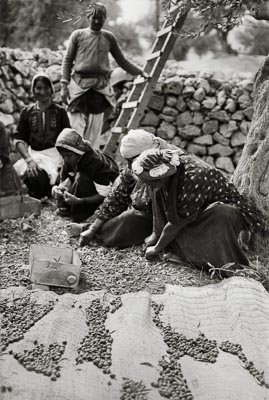
Olive Trees and Pressing

Source: Jerusalem, Bethany, and Bethlehem, p. 10
Olive Trees in the Kidron Valley
The olive is of slow growth and bears no fruit until the seventh year, but it will continue to yield its fruit until extreme old age. For twenty generations the owner gathers fruit from the faithful old patriarch. The olive is the most prodigal of all fruitbearing trees in flowers. It bends under the weight of them, but not one in a hundred comes to maturity. The tree casts them off as if they were of no more value than flakes of snow, which they closely resemble. (Source: Earthly Footsteps of the Man of Galilee, p. 304.)
Gathering Olives from the Ground
People eat the pickled olive berry as a relish. It furnishes the oil for nearly all the cooking which is done in the East. There is an old saying: "When the oil fails the lamp in the dwelling of the poor expires." Early in the autumn the berries begin to drop by themselves or are shaken off by the wind. They are allowed to remain under the trees for some time guarded by the watchmen of the town; then a proclamation is made by the governor, and the owners of the olive trees gather the fallen berries. After this gathering by the owners, the poor are permitted to glean all that they can, reminding us of the command: "When thou beatest thine olive tree thou shalt not go over the boughs again; it shall be for the stranger, the fatherless and the widow." (Source: Earthly Footsteps of the Man of Galilee, p. 304.)

Source: Earthly Footsteps of the Man of Galilee, p. 304
Oil Mill, Damascus
Damascus is famous for its culture of the olive. In the suburban gardens and groves we find olive trees in great abundance . . . . In ancient times generally, and in some places at the present day, olives were ground into pulp in large stone basins by rolling a heavy stone wheel over them, and the oil was expressed in stone presses established near by. This method of getting the oil reminds one of Job's statement: "The rock poured out rivers of oil." The above picture is of an oil mill in the suburbs of Damascus. (Source: Earthly Footsteps of the Man of Galilee, p. 304.)
See Grain, Vineyards, or Fishing and Fishermen
At BiblePlaces, see Olive Trees or Olive Harvest
